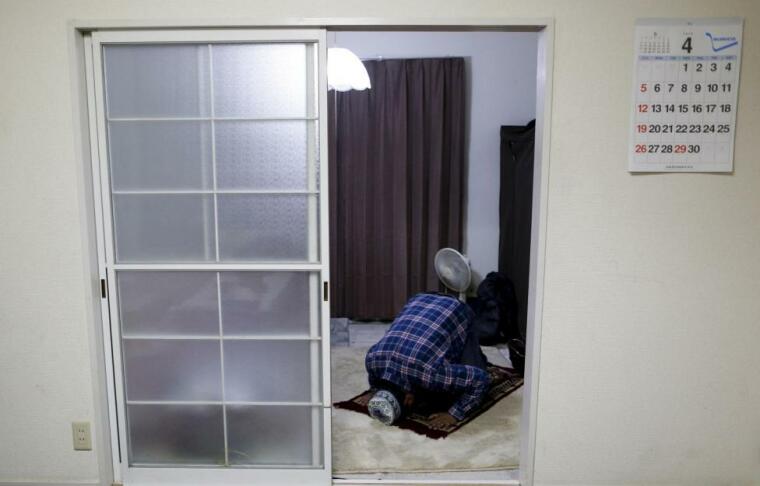Japan approves Muslim surveillance and profiling to screen terror suspects
Japan's Supreme Court ruling on May 31 signaled its approval of police surveillance to profile suspected and potential future terrorists among its Muslim population.
According to Al Jazeera, 17 plaintiffs of mostly Middle Eastern or North African origins lodged two cases of appeal to challenge the police surveillance and profiling among the country's Muslim community. The judges largely ignored the case of police surveillance and profiling while they granted ¥90 million ($880,000) to the plaintiffs for violations of privacy.

"We were told we don't have a constitutional case," the plaintiffs' lawyer Junko Hayashi told Al Jazeera. "We're still trying to figure out, how is it not constitutional?"
The cases came after 114 police files leaked in 2010 and revealed a detailed profiling of the country's Muslim residents. The files also dated back in 2008 with at least 72,000 individuals from Organization of Islamic Conference countries already profiled.
According to an earlier report by Al Jazeera, researchers believed that the negative stereotyping of Muslims started after the infamous Sept. 11, 2001 terrorist attack on the United States.
"Police stationed agents at mosques, followed individuals to their homes, obtained their names and addresses from alien registration records, and compiled databases profiling more than 70,000 individuals," said a 2014 Asia-Pacific Journal, "Japan Focus."
"In some cases, the police actually installed surveillance cameras at mosques and other venues," read a statement in the article.
Although a National Police agency official insisted that "police collected information according to the law" while saying that they could not possibly disclose any information regarding their activities to thwart terrorism, the United Nations human rights committee indicated in their report that it considered the practice a "violation" and a form of "racial discrimination."
Hayashi, also a Muslim, expressed concern for the Muslim kids growing up in Japan.
"The police have been dealing with them as future terrorists," Hayashi said.
 Christians don't have to affirm transgenderism, but they can’t express that view at work: tribunal
Christians don't have to affirm transgenderism, but they can’t express that view at work: tribunal Archaeology discovery: Medieval Christian prayer beads found on Holy Island
Archaeology discovery: Medieval Christian prayer beads found on Holy Island Presbyterian Church in America votes to leave National Association of Evangelicals
Presbyterian Church in America votes to leave National Association of Evangelicals Over 50 killed in 'vile and satanic' attack at Nigerian church on Pentecost Sunday
Over 50 killed in 'vile and satanic' attack at Nigerian church on Pentecost Sunday Ukrainian Orthodox Church severs ties with Moscow over Patriarch Kirill's support for Putin's war
Ukrainian Orthodox Church severs ties with Moscow over Patriarch Kirill's support for Putin's war Islamic State kills 20 Nigerian Christians as revenge for US airstrike
Islamic State kills 20 Nigerian Christians as revenge for US airstrike Man who served 33 years in prison for murder leads inmates to Christ
Man who served 33 years in prison for murder leads inmates to Christ


 Nigerian student beaten to death, body burned over ‘blasphemous’ WhatsApp message
Nigerian student beaten to death, body burned over ‘blasphemous’ WhatsApp message 'A new low': World reacts after Hong Kong arrests 90-year-old Cardinal Joseph Zen
'A new low': World reacts after Hong Kong arrests 90-year-old Cardinal Joseph Zen Iran sentences Christian man to 10 years in prison for hosting house church worship gathering
Iran sentences Christian man to 10 years in prison for hosting house church worship gathering French Guyana: Pastor shot dead, church set on fire after meeting delegation of Evangelicals
French Guyana: Pastor shot dead, church set on fire after meeting delegation of Evangelicals ‘Talking Jesus’ report finds only 6% of UK adults identify as practicing Christians
‘Talking Jesus’ report finds only 6% of UK adults identify as practicing Christians Mission Eurasia ministry center blown up in Ukraine, hundreds of Bibles destroyed: 'God will provide'
Mission Eurasia ministry center blown up in Ukraine, hundreds of Bibles destroyed: 'God will provide' Church holds service for first time after ISIS desecrated it 8 years ago
Church holds service for first time after ISIS desecrated it 8 years ago Burger King apologizes for 'offensive campaign' using Jesus' words at the Last Supper
Burger King apologizes for 'offensive campaign' using Jesus' words at the Last Supper Uganda: Muslims abduct teacher, burn him inside mosque for praying in Christ’s name
Uganda: Muslims abduct teacher, burn him inside mosque for praying in Christ’s name